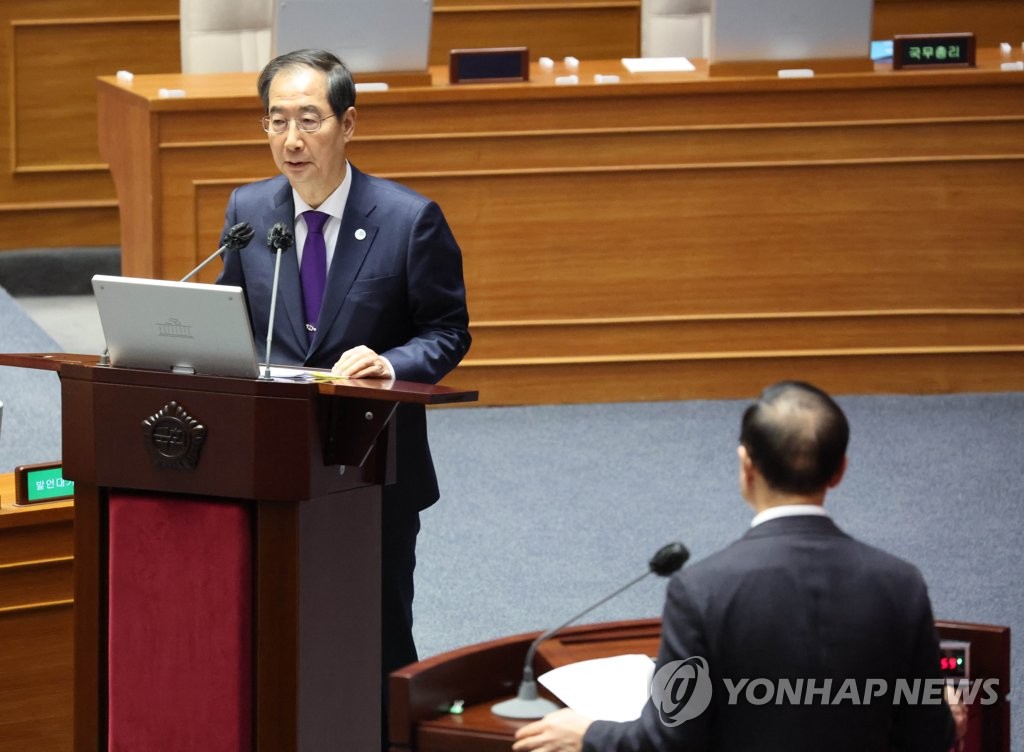- California Assembly OKs highest minimum wage in nation
- S. Korea unveils first graphic cigarette warnings
- US joins with South Korea, Japan in bid to deter North Korea
- LPGA golfer Chun In-gee finally back in action
- S. Korea won’t be top seed in final World Cup qualification round
- US men’s soccer misses 2nd straight Olympics
- US back on track in qualifying with 4-0 win over Guatemala
- High-intensity workout injuries spawn cottage industry
- CDC expands range of Zika mosquitoes into parts of Northeast
- Who knew? ‘The Walking Dead’ is helping families connect
PM says relations with Japan must move toward future
Prime Minister Han Duck-soo said Monday that South Korea’s relations with Japan must move toward the future, as Seoul has unveiled a plan to resolve the issue of wartime forced labor that has long strained ties with Tokyo.
“We believe that Korea-Japan relations should move toward the future rather than being too obsessed with the past, given diplomatic, security and economic situations we are facing,” Han told a parliamentary meeting.
Han’s remarks came in response to a question by a lawmaker on how the government would resolve the issue of wartime forced labor.
“On this issue, we believe that the relationship between Korea and Japan should be normalized, while providing sufficient communication to those who have suffered various pains at home,” Han said.
Relations between Seoul and Tokyo have frayed since South Korea’s Supreme Court issued rulings in 2018 that ordered Japan’s Nippon Steel and Mitsubishi Heavy Industries to pay compensation to the Korean forced labor victims.
Last month, the government unveiled the plan to compensate victims of Japan’s wartime forced labor through a public foundation, in an alternative to receiving compensation from the Japanese companies.
However, the government’s plan drew strong backlash from victims and their families.
Asked whether the Japanese companies should be involved in the compensation plan, Han replied, “I think we should fully understand the thoughts of those who suffered such damage in Korea and try to come up with a good solution through communication with them.”












